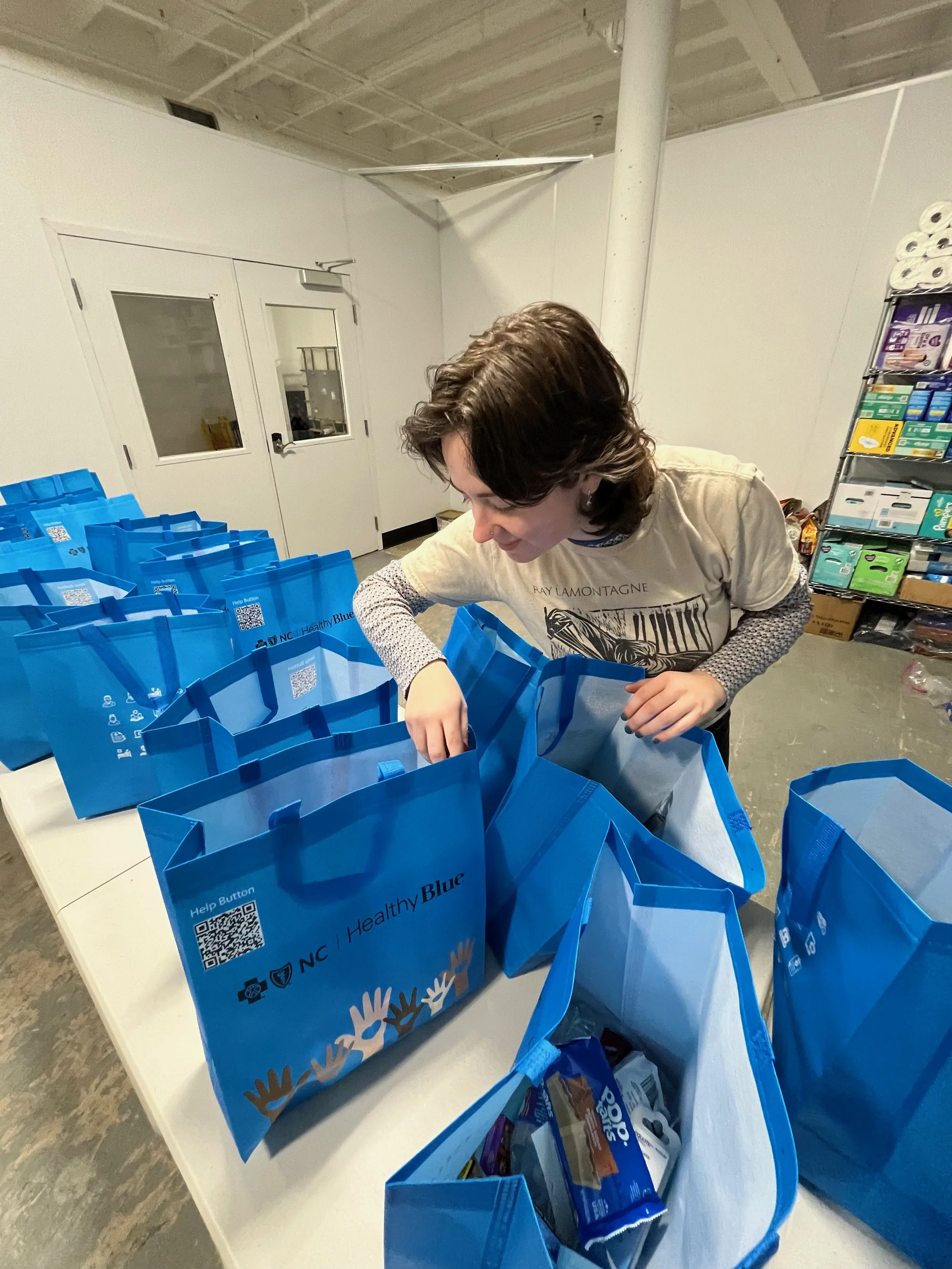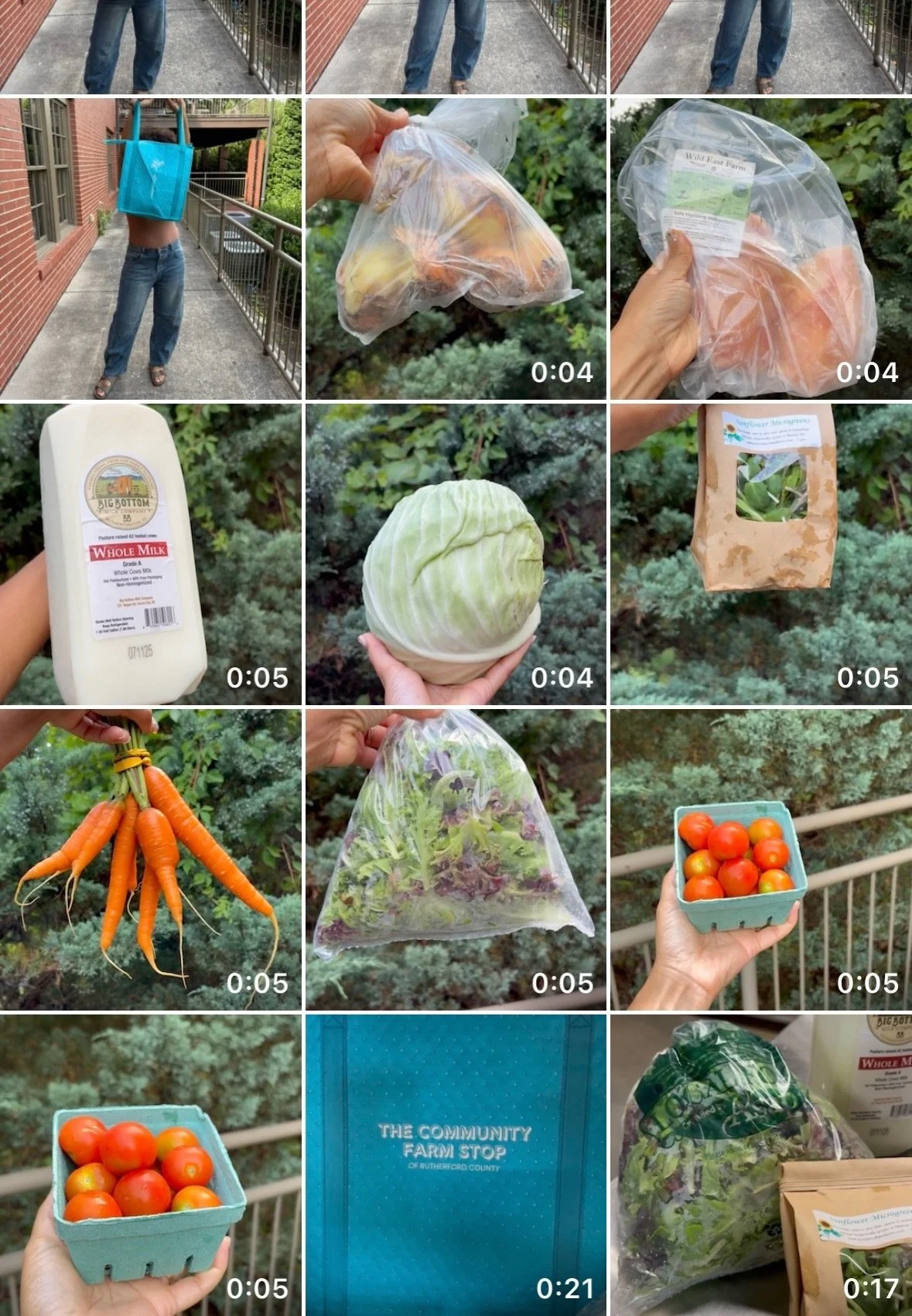Healthy Food Distribution
Varied programs deliver nutritious, fresh, and - whenever possible, local - food to hungry people with limited access to other free food opportunities. We coordinate home food deliveries in partnership with Federally Qualified Health Centers; we build and support indoor walk-through, outdoor walk-up, and mobile delivery free food pantries in partnership with locally owned businesses, food hubs, and farmers; and we assemble and distribute nutrient-dense snack bags that meet unique health, cultural, and dental needs.
2025 Priorities
-
Harm Reduction Snack Bags
This program provides food for neighbors who are unlikely to access other food pantries due to transportation, safety threats, language, and other varied and nuanced barriers.
We work across 5 counties (Buncombe, McDowell, Burke, Madison and Macon) to deliver easy-to-eat snacks, primarily for folks experiencing substance use addiction. Snacks are easy to prepare and easy to consume regardless of dental challenges. We have additional partnerships distributing food to LGBTQ+ centers, and summer programs for kids experiencing food insecurity.

-
WNC Food Hub Collaborative
We facilitate a working group of 10 independent food hubs (and growing!) across WNC. The group has two main goals: keep small farmers farming by increasing their market outlets and keep hubs aggregating local food by creating mutually beneficial programs and shared fundraising. It is the largest collaboration of independent food hubs in WNC.
Participating hubs agree to high standards for local food procurement and excellent treatment and pay for local farm partners.

-
Rural Food Box Program
In partnership with 3 federally qualified health clinics and 2 food hubs, we co-manage a multi-county food box delivery program, offering holistic wrap-around care for patients. First, Primary Care Providers refer patients who are experiencing food insecurity. From there, the food hub aggregates local, healthy fresh produce, meat, eggs and dairy and builds weekly food boxes. A Community Health Worker from the clinic picks up the boxes and delivers them directly to the patient’s home. This overcomes transportation barriers for rural residents, and gives them an additional, trusted touch point in the health care system.

